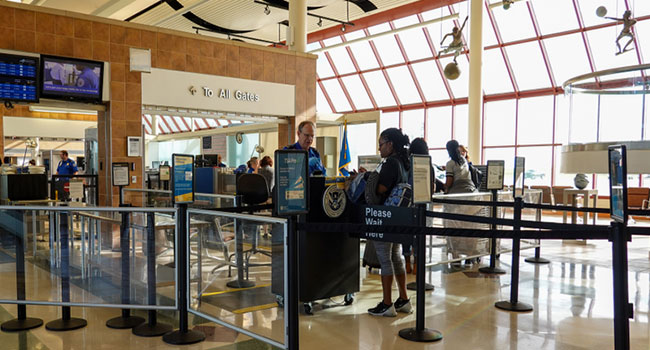
DHS Delays Real ID Deadline Until 2021 Due to Coronavirus Crisis
While the extension will provide another 18 months for Americans to obtain the new driver’s licenses, some officials believe the deadline will have to be extended again.
- By Haley Samsel
- Mar 27, 2020
As public health experts urge Americans to stay at home during the coronavirus crisis, the Department of Homeland Security has announced the extension of the Real ID enforcement deadline by an additional 12 months.
The deadline for U.S. residents to obtain a new driver’s license that could be used to board planes was set for Oct. 1, 2020. In most states, the process of obtaining the license required standing in long lines at state driver’s license departments, many of which have recently closed.
For that reason, the government will wait to begin enforcement of the regulation until Oct. 1, 2021.
“The federal, state and local response to the spread of the coronavirus here in the United States necessitates a delay in this deadline,” Chad Wolf, the acting secretary of DHS, said in a statement on Thursday. “Our state and local partners are working tirelessly with the administration to flatten the curve and, therefore, we want to remove any impediments to response and recovery efforts.”
Real ID licenses are differentiated by a star in the upper-right corner. The new licenses are mandated by the 2005 Real ID Act, which requires states to issue IDs with features that make it harder for terrorists or criminals to replicate them.
Read More: One Year Before Real ID Deadline, Americans Are Not Prepared For Airport Security Change
Travelers will still be able to use their passports or military IDs to board planes, but government officials and travel industry advocates have worried about the lack of knowledge about the driver’s license requirement. TSA agents will likely be forced to turn away many passengers who lack proper identification.
The U.S. Travel Association applauded the decision by DHS to move the deadline, but warned that it may be necessary to further delay the enforcement date.
“The already difficult task of bringing the country closer to REAL ID compliance is now clearly impossible due to the coronavirus crisis,” U.S. Travel President and CEO Roger Dow said in a statement. “Over the next 18 months people will be focused on building their lives back, not going to the DMV. The economic damage of coronavirus is already massive, and as we move toward a recovery phase it would be awful if the REAL ID deadline hits and creates yet another obstacle to people traveling.”
Civil liberties groups have also expressed concerns about the possibility of DMV workers denying new licenses to immigrants who either cannot provide necessary paperwork or errors from employees sorting through immigration documentation, The New York Times reported.
U.S. Travel, which conducted a survey last year finding that most Americans did not know about the changing ID requirements for air travel, also estimates that as many as 79 million Americans have not obtained a new compliant license. The deadline for obtaining the license has changed several times since it was originally slated to be completed in 2008.
About the Author
Haley Samsel is an Associate Content Editor for the Infrastructure Solutions Group at 1105 Media.